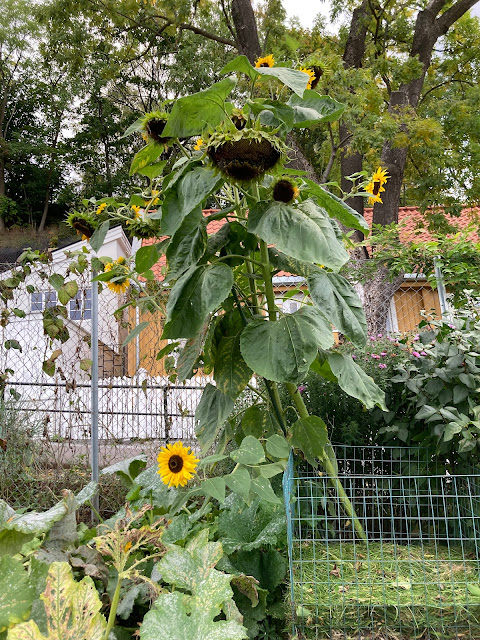When I was in New York at the beginning of September, I reconnected with a college friend whom I haven't seen in years. We met in Manhattan and spent two happy days visiting the JP Morgan library, eating well, and catching up. She is a former minister (now happily retired), and has always read inspirational literature that she likes to share with others. This time around she passed on a book to me entitled
The Only Little Prayer You Need by Debra Landwehr Engle. She'd read it and wanted me to have it. I've always been fairly skeptical of books that promise happiness, abundance, and wealth, if only you do this or that. But I gave this one a try because my friend recommended it. It was an easy read and had some interesting points to make, among them that many of our thoughts during an average day are fear-based (rather than love-based), leading us to behave in ways that keep ourselves protected, but still scared. But the flip side of choosing that protection is to choose a fear-based life. In other words, we're not living our lives in the fullest way possible, because if we choose how we act out of fear, we limit ourselves. It really is that simple. So the little prayer she shares is the following: 'Please heal my fear-based thoughts'.
I got to thinking about the fears we live with each day. Mine often include worrying about some event several months in the future that I have planned or am planning, or to which I have been invited. I worry that I won't manage to get it all done, that something will happen to put a monkey wrench in the planning or execution, or that I won't really enjoy the show/party/dinner etc. to which I've been invited. There's a small little voice egging me on saying--stay home. I ignore it mostly, but it's there. Other fears include worrying about not having enough time to do the things I want to do, about my health issues or worrying about the health issues of loved ones, worrying that I'm not living up to my obligations, feeling guilty about that, or feeling guilty about a host of other things that I won't go into here, but that often have to do with what (I perceive) other people think and feel about something I'm doing (or not doing). Not being able to (or not really wanting to) live up to the expectations of others is a fear, a wholly irrational one, since I have been the dutiful child, student, employee, partner etc. for my entire life. I meet others' expectations and sometimes go beyond them, especially when I was working. I don't think I've ever been a slacker during my entire work life, or in my life generally. What surprises me is that the fear of not wanting to be a slacker has been a motivating and driving force my entire life. In that context, I wonder if I've ever really understood the word 'relaxation'. I have one friend who always tells me that I look so relaxed now that I've retired. I've never really thought about it, because in my mind, I retired from my job as a scientist, but I've filled my days with writing and other things that continue to drive me and to occupy my mind. The to-do list is long, even though I no longer work at a formal job. Sometimes I think, no wonder I'm tired half the time. I don't allow myself to really relax. I should, but I know it won't be easy to unlearn some ways of thinking.
Engle lists some of the fear-based thoughts/feelings we all have and deal with--abandonment, feeling not good enough, guilt, judgment, conformity, control (not only over people but in terms of having to have things a certain way), need for power, jealousy, meanness, irritation, anger, pessimism, shame, scarcity--the list is long. She doesn't say that these thoughts/feelings are bad in and of themselves. It's when they get control over us that they become problematic. None of us are exempt from feeling them; it's part of the human condition. But they can interfere with having a peaceful and serene life--a happy life. Engle doesn't define happiness in terms of material wealth or the absence of pain and suffering.
The key is to catch yourself having the fear-based thoughts. Once you can learn to be aware of them, you can begin the process of choosing thoughts that are rooted in love. Love-based thoughts/feelings as she describes them are acceptance, compassion, forgiveness, generosity, kindness, playfulness--among many others. But of course we're talking about a daily exercise--saying the prayer--and letting in the change we want in ourselves. I doubt it's easy. Since I finished her book, I've been trying to stay aware of my thoughts that are rooted in fear and saying the prayer in that moment. It's interesting to say the least. I am passing the book on to another woman whom I think might benefit from reading it. Pay it forward is a love-based thought (the recipient is free to read the book or not read it). Engle's overall point is that if all of us acted more on our love-based thoughts rather than fear-based thoughts, it would (perhaps) result in a better world, a more peaceful world. And given the current world situation, that might not be such a bad idea.











